During a recent trip to Normandy, France, UMBC student Rebecca Smith hopped over to Lüneburg, a historic town in northern Germany, to visit Gertrud Krause-Traudes, her partner in UMBC’s Virtual Tandem Conversation project. After three semesters of virtual conversations in German and English, Smith was more than happy to go the extra kilometer (plus a few hundred more) to meet her in person. Krause-Traudes, a professional tour guide, was excited to show Smith Lüneburg’s historic sites.
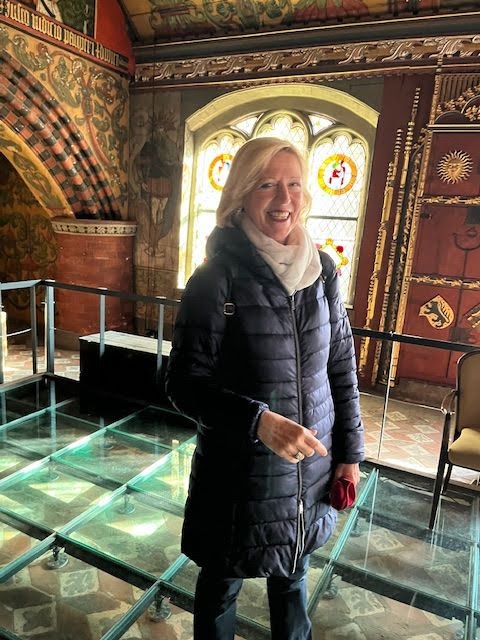
The Virtual Tandem Conversation project was created by Susanne Sutton, a teaching professor of German, and Talke Macfarland, a visiting lecturer of German in UMBC’s Department of Modern Languages, Linguistics, and Intercultural Communication. They established the program during COVID-19 to help UMBC students learning German and German students learning English socialize while continuing to improve their language skills.
“I asked the director of the International Center at Leuphana University Lüneburg to post a call for participants on their listserv,” says Sutton, who, while visiting her hometown, had met the director in nearby Lüneburg to discuss UMBC study abroad credit equivalencies. “That generated 35 applicants! It just grew from there,” Sutton says. Now, Sutton is managing partnerships and recruiting collaborators from two additional institutions: University of Kassel and BBS-1 Wirtschaftsgymnasium, a business vocational high school.
Smith, who is a professional harpist, enrolled in UMBC’s Golden ID Program at the beginning of the pandemic to continue taking classes with Macfarland, whom she first met at Anne Arundel Community College. “To my delight, faculty and students warmly welcomed me into their German classes,” says Smith, who was returning to take classes and rekindle her love of German after raising her family and pursuing her music career. “In 2023, I became involved with the tandem program, where my German counterpart, Gertrud, and I instantly developed a friendship through our mutual love of music and foreign languages.”
“How fortunate and privileged I feel to be part of this vibrant international community at UMBC, who seek not only to advance their students’ language abilities, but even more importantly, to build bridges between the two countries, one person at a time—diplomacy at its best!” says Smith.
Getting to know you
Macfarland and Sutton grew up in the state of Lower Saxony in northern Germany. Their joy for teaching their heritage language is a key reason the program has grown from one semester to a sequence of three semesters, each with increasing difficulty and 35 – 40 tandem participants per year.
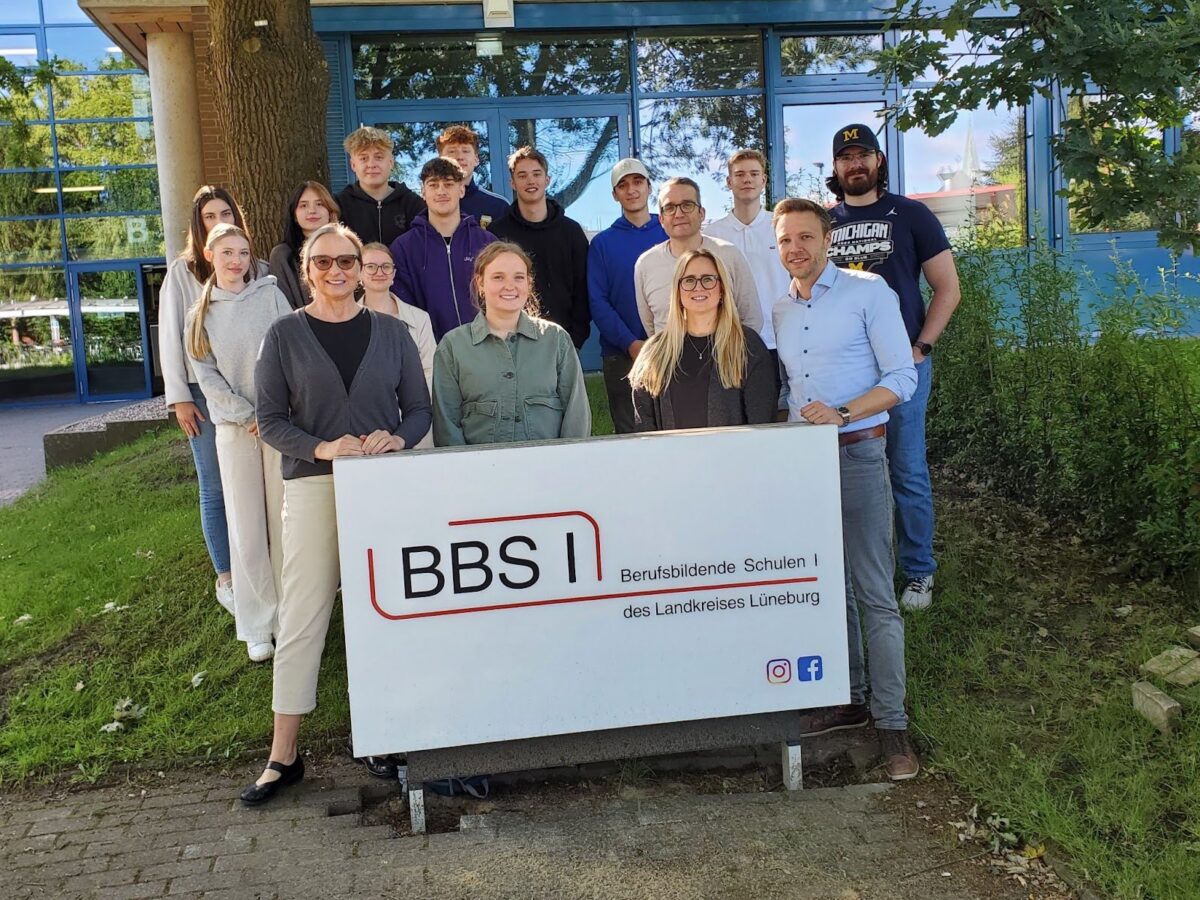
The tandem project is now a required component of the German course sequence to increase proficiency in reading, writing, speaking, and listening, emphasizing intercultural communication and global awareness. However, the actual tandem meetings are entirely student-driven and take place outside of the classroom—each tandem pair arranges virtual meetings according to their schedule. UMBC students keep a weekly diary, where they document their conversations. During the first three weeks, partners learn about each other, exploring their respective cities and universities.
“I provide questions that relate to what we currently do in class,” says Macfarland. “For instance, when we read about an exhibit by German visual artist Gerhart Richter, I asked partners to discuss art: Do you visit museums? What interests you? What’s nearby? Are you artistic? What art or work resonates with you and why?” The journal also allows instructors to monitor and give feedback on students’ weekly meetings. Some of these conversations have led to more personal exchanges, such as discussing video games they play or playing together, sharing the latest music, or exchanging photos.
“My students take what their tandem partners say seriously, and it sticks better than when we just cover the grammar in class. I think it is because they really get to experience the language in action and receive feedback from someone their age who can confirm (or deny) what they have learned in class,” says Dawn Nichols, a tandem faculty partner and lecturer of English at the University of Kassel in central Germany, an official UMBC exchange partner. “Their partners also add a little bit of context and experience to specific language choices and give them 1:1 attention, which is not always easy to do in every lesson.”
Overcoming linguistic and cultural barriers
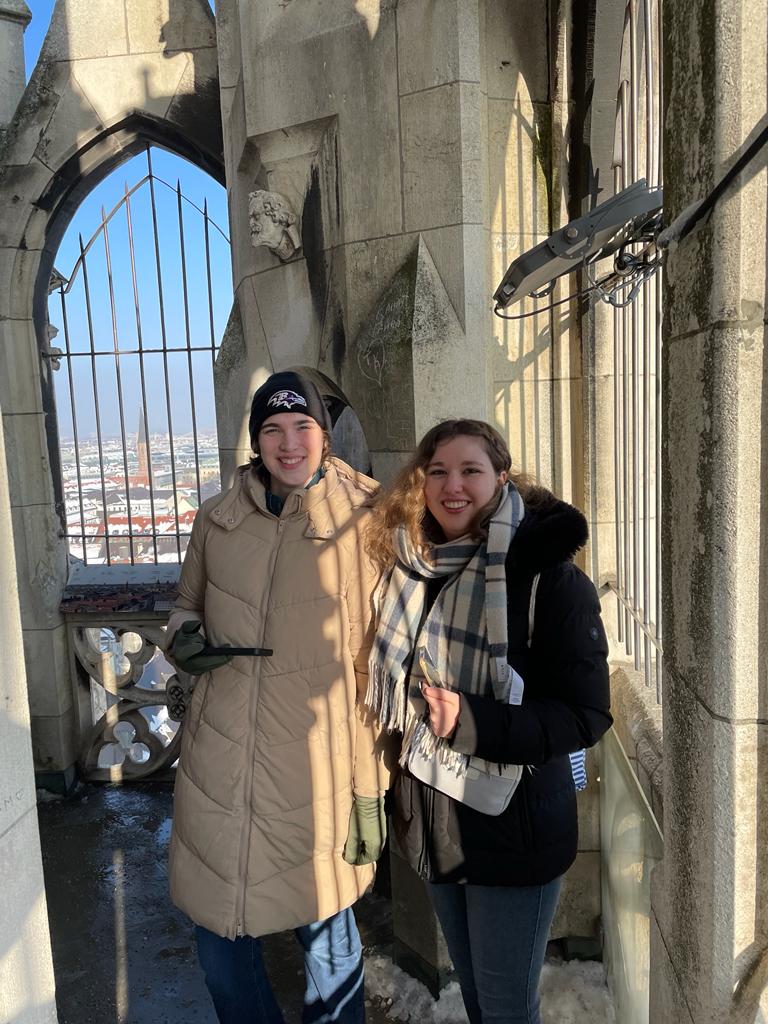
The Tandem Conversation Program has evolved to be a vehicle for dismantling stereotypes and misconceptions about the United States and Germany. Liana Grosko, a geography and environmental systems junior with a German minor, was apprehensive about participating in the project. “German was halting for me, and no matter how much I prepared for it, there was always a learning curve when interacting with a native German speaker,” says Grosko. “My German fluency has much improved since we started talking, as well as my knowledge and appreciation of my culture’s place in the world and, of course, my friendship with Malin Heinrich, my tandem partner. I ended up getting to meet her in person in Munich early last year.”
Nichols attests to the improvement in fluency and accuracy, but also more unexpected benefits like a decrease in anxiety some German students experience when speaking English. She continues to be excited each time she hears students learn day-to-day language that is sometimes left out of textbooks and knowledge that helps them better understand American culture and critique their system.
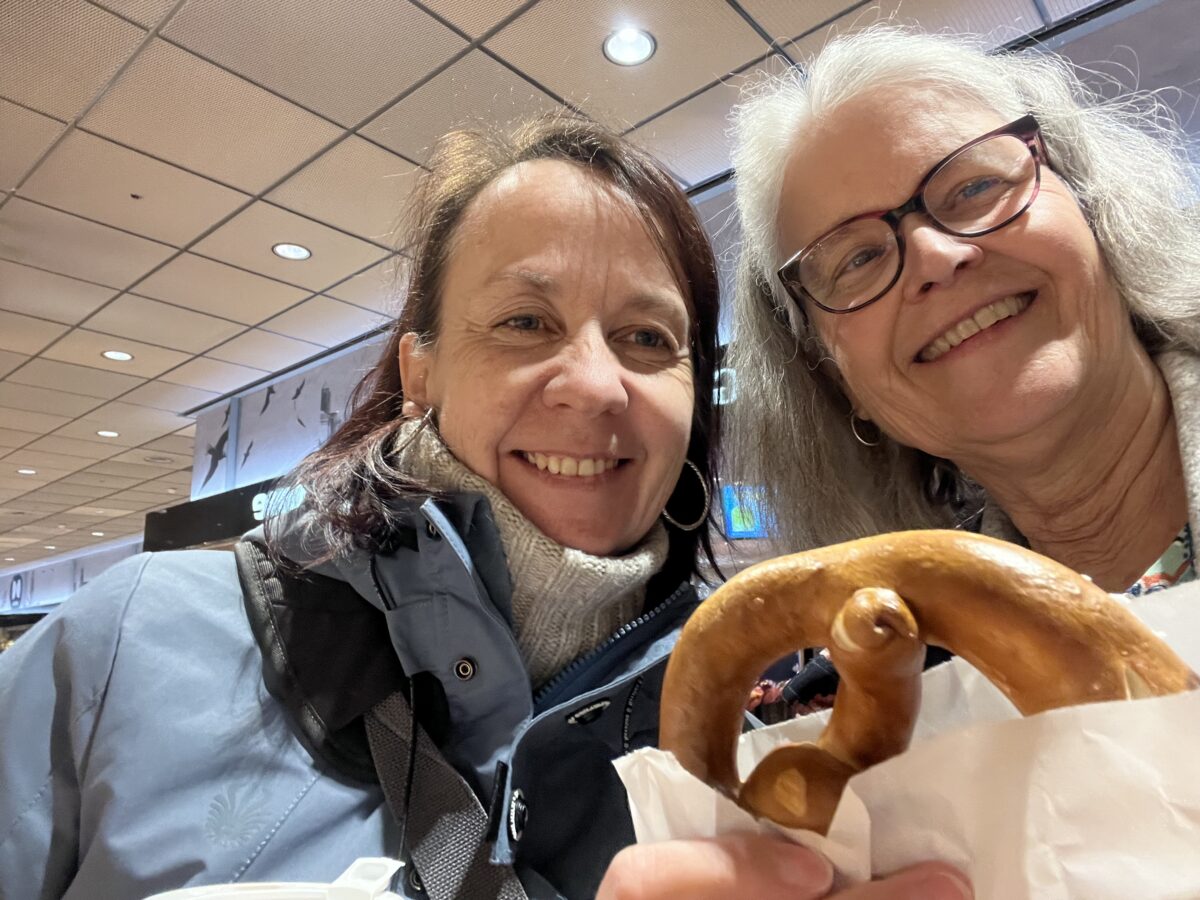
The program continues to have far-reaching effects. Smith has taken four classes with Macfarland and six with Sutton to date. She plans to visit Vienna this summer, where she hopes to connect for a second time with classmate and former German teacher Doris Hoelscher-Stanley, an MMLIC senior currently living in Hamburg, Germany. She first visited Hoelscher-Stanley in Hamburg on her trip to meet Krause-Traudes. Smith is not the only tandem participant to go beyond the virtual classroom. Last summer, Sutton and Macfarland had their own exchange in Leipzig, Germany, four hours from Lüneburg, where they attended a workshop on teaching German as a foreign language in the U.S.
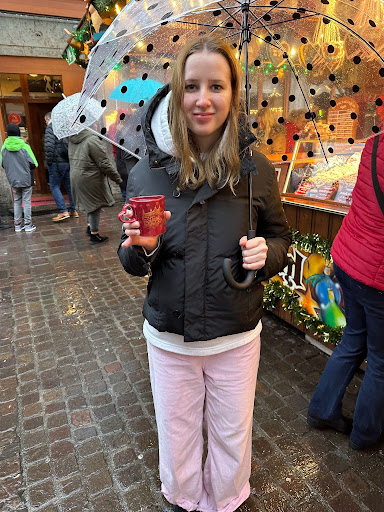
The tandem program inspired Emma Gebhard ’23, a psychology major with a German minor, to apply to the Congress-Bundestag Youth Exchange for Young Professionals program to study and work in Germany. She was one of 74 Americans chosen as a 2024 – 2025 fellow. Desire Hayes ’24, an English major with a German minor, put her skills to work studying abroad at Leuphana University Lüneburg, where she met Nele-Sophie Bauer, her German 202 tandem partner.
Other partners are making more plans to meet. “Now that the project has concluded for me, I can confidently say that it was a success. I have learned a great deal about American culture, and I feel much more confident in my English abilities. I no longer hesitate to start speaking English in everyday situations without any prior preparation,” says Heinrich, who was paired with UMBC student Liana Grosko. “The greatest success has been forming a friendship with Liana. We still communicate weekly, and I eagerly look forward to meeting her again in person this spring.”
“This tandem has put Baltimore on the map for some of my students, who generally only know something about California, Florida, and New York,” says Nichols at the University of Kassel. “Putting a very human and relatable face to the abstract concept of the United States—it’s normal to have some (mis)conceptions about people we don’t know. One part of this exchange that cannot be overvalued is how it helps our students see each other as real people and not just some image they see or read somewhere.”
Learn more about UMBC’s Modern Language, Linguistics, and Intercultural Communication German track options.

